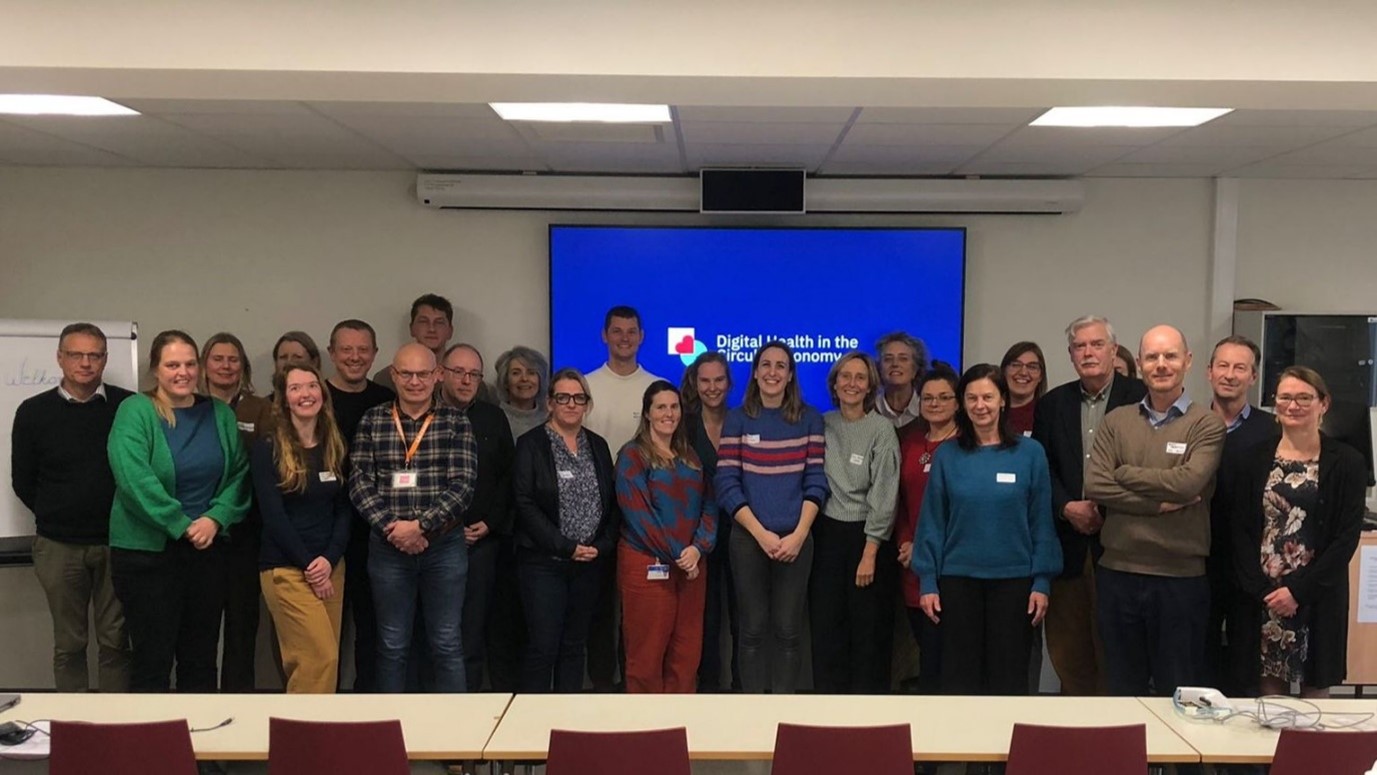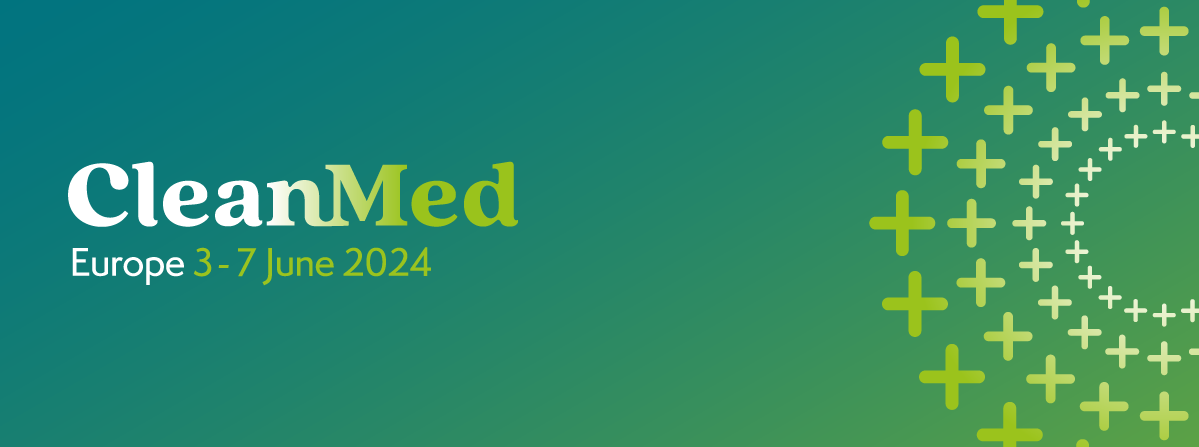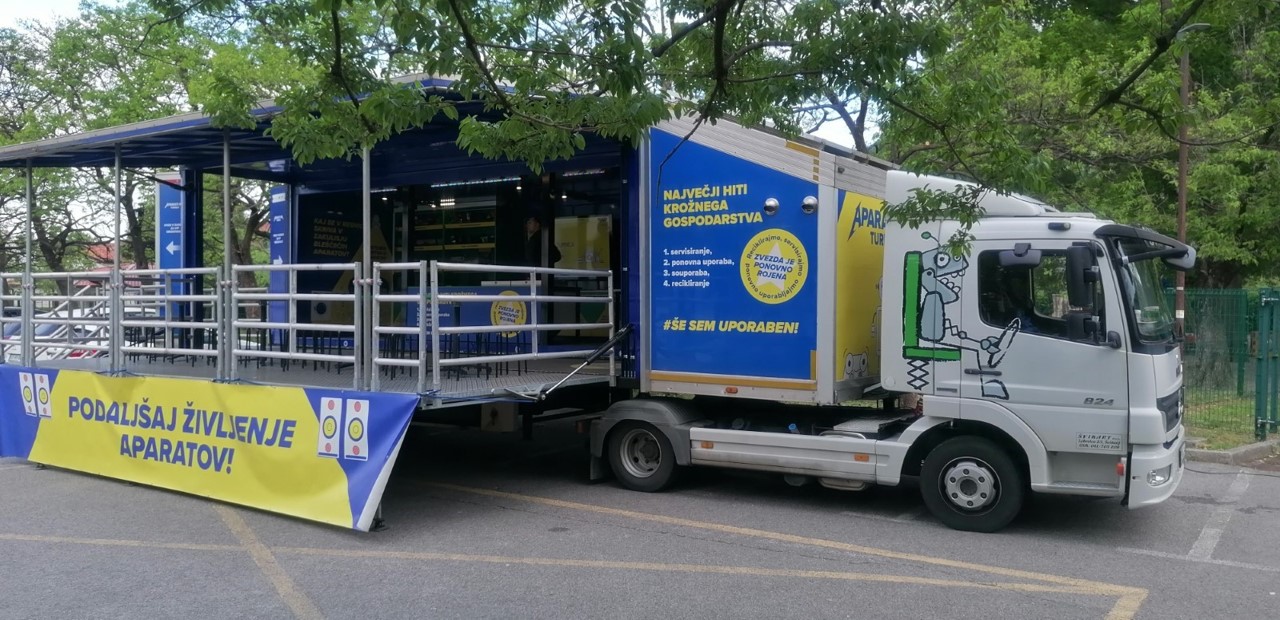Digital Health in the Circular Economy (DiCE) project was created to bring key stakeholders together to address the environmental challenges associated with the growing use of digital healthcare products. DiCE will support the transition from a fragmented and linear “take-make-waste” business model for digital healthcare products towards a circular and sustainable one, allowing the reuse of products and recovery of components and raw materials.
In this newsletter you will find the most recent updates on the project.
Our First Year in Review
The project’s first year illuminated the path to circular design in digital health devices while simultaneously pushing the boundaries of sustainability in health care. The Consortium’s efforts were driven by a shared commitment to reducing environmental impact and fostering patients, well-being, and innovation in healthcare technology - read more in the detailed overview under the link below.
2024 will bring more developments and a shift in focus to the remaining products in focus while continuing to consult citizens and stakeholders in Europe. In the next couple of months, DiCE will collaborate with the European Commission’s Circular Cities and Regions Initiative and present at several conferences (more info further in the newsletter).
2024 will also indicate the start of the project’s confirmatory pilots including local collection points and creative nudging strategies. Copenhagen Business School will take the lead in ensuring the sustainability of the project’s wide-reaching and longer-term impacts.
Pilots Meeting in Antwerp
DiCE partners headed to Antwerp in February to discuss their findings on design principles, collection methods including GRIN AS’ progress on its collection box prototype, data needs, behavioural science, and motivational strategies over a
year into the project.
2024 marks the launch of DiCE’s small scale pilots that requires diligent research and preparation. Our partners couldn’t be more excited to soon kick off these activities and take a step closer to developing circular solutions and “nudging strategies” for digital health devices.

Successful Workshop Involving Local Stakeholders in Ghent
DiCE, OVAM, and Bebat joined forces ahead of the publication of a research on disposable medical equipment that contains batteries to bring industry professionals and policymakers together for an interactive workshop and networking event at UZ Gent in November 2023.
Dutch speaking DiCE stakeholders as well as participants of the Flemish “Green Deal Sustainable Care” were invited by OVAM, the Public Waste Agency in the region of Flanders.
This collaboration served as a great opportunity to establish synergies between a Europe-wide project and local actors, emphasizing the relevancy of DiCE in the ever-evolving digital health landscape.
Clustering Meeting with ECOSWEEE
DiCE and ECOSWEEE Life EU project partners met in January 2024 to discuss potential synergies between the two projects. The work done by both projects align when it comes to motivating and educating consumers to return their used, small, electronic equipment. So much so that DiCE and ECOSWEEE will join forces for a session at E-Waste World in Frankfurt, on 26th June, from 16:00 to 17:00!
Upcoming Events featuring DiCE:

Date: 5 June 2024
Time: 14:15 - 14:45 CEST
Register here

Date: 26 June 2024
Time: 16:00 - 17:00 CEST
Register here
Meet Our Partners!
In this series, project partners introduce themselves and discuss their reasons for joining DiCE in a video recorded at the very first consortium meeting in 2022. With the benefit of a year of DiCE research behind them, they also elaborate on their outlook for the project's future.
1| Discover why Copenhagen Business School (CBS) joined the project here.
2| We also asked Sonia Valdivia, Scientific Director of the World Resources Forum, why they joined the project.
3| Join Jeremy Faludi, assistant professor of sustainable design engineering at TU Delft as he explains why they joined a project and in particular, what he thinks DiCE can achieve.
4 | Listen to Rob Tieben's enthusiastic introduction to Games for Health and the DiCE project.
5 | Uncover ECOLEC's former Operations Directors', Enrique Redondo's personal motivation to join the DiCE project.
Who is Who in Our Advisory Board?
Get to know some of our Advisory Board and how their extensive experience in the field ensures that the DiCE project delivers the best results:
1| Cristina Gonzalez from ERM
2| Dr. Harald Desing from Empa
3| Daniela Pigosso from DTU
4| Myriam Ertz from LaboNFC
5| Christian Djurhuus a pharma executive gone digital
Brought to You by Our Researchers
Gain insight into our experts', scientists' and researchers' work through their articles available below! Aimed at educating our audience on circular practices, behavioural science, sustainable e-waste management and more, we set out to create a regularly updated knowledge base available on our website. See the first three articles of this series here below.

Circular Hybrid Products – Pointing to Sustainability in the Digital Age
Brought to you by Andreas Wieland, Attila Márton, Christiane Lehrer from Copenhagen Business School and Camille Rønn, Daniel Fürstenau from IT University of Copenhagen
The transition to sustainability has increasingly become a focal point in various sectors, including digital devices, where the integration of circularity into product design represents a growing area of interest. This interest stems from the expanding discourse on sustainability, which now embraces the concept of circularity and aims to transform linear supply chains into sustainable supply cycles. This transformation is critical in addressing the environmental impact of digital products, which, despite the growing emphasis on software and data, continue to grow at an alarming rate and contribute significantly to e-waste, resource depletion, and data depletion.
- What are circular hybrid products?
- What are circular hybrid products in digital healthcare?
- What is DiCE’s role in advancing circularity?
- How does the future of circular hybrid products look like?

Promoting Sustainable E-Waste Management Through Citizen Engagement
Brought to you by Mª José Hernández, Rosa Almeida and Elisa Sáez from the INTRAS Foundation
Engaging end-users of digital health devices in the reverse logistics process fosters solidarity by encouraging the responsible use of health resources as well as proper e-waste management. This involvement promotes a sense of responsible citizenship and supports transformative innovation. Citizen engagement is vital for fostering attitudinal shifts and driving meaningful change. Living Labs constitute an ideal infrastructure for co-creation and testing innovative solutions.
Nowadays, the core position of co-creation (integrating co-analysis, co-design, co-production, co-evaluation and co-implementation) as a strategy for socio-health innovation is unquestionable. Empowering citizens to directly influence solutions and contribute to innovations crafted “with” and “by” them is more rewarding than merely creating solutions on their behalf.
- What is “Living Labs”?
- How to encourage the participation of key actors?
- Use of participatory methodologies in the DiCE project

The E-Transformer Takes on Slovenia
Brought to you by Borut Bernat from EKOSIJ
Aiming to educate the Slovenian population about hazardous substances in electrical and electronic equipment (EEE), the negative environmental impacts of improper disposal and the benefits of recycling, ZEOS (and EKOSIJ)* are raising awareness to create a more informed and responsible society.
*EKOSIJ is a member of ZEOS, the biggest extended producer responsibility organisation in Slovenia.
Sharing is caring
Do you know someone in your local network who would be interested in the outcomes of DiCE? Click here to download our leaflet in Slovenian, Flemish or Spanish. English speakers are no exception either, find your copy here! All interested parties are also invited to register to the DiCE network!👇
Join our network!
Stakeholders’ contributions are crucial for the project! Our goal is to create a network that will provide feedback to enable us to understand end user needs, collect data, test outcomes and raise awareness through sharing results.


